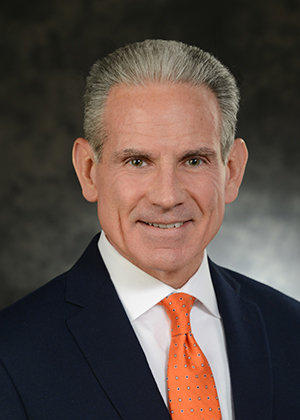
Civility as a Professional Imperative and Advantage
By Anthony D’Angelo
I’m willing to bet that you, like me, believe we are living in a time of incivility, and find it polarizing, frustrating and exhausting. The stink of a generally nasty societal atmosphere is unfortunately obvious, but less plain is what people, including those in my profession of public relations, might do to change it.
Some of the answers lie in ethical standards and codes, such as the Public Relations Society of America’s (PRSA’s) Code of Ethics, and I believe that learning and acting on such principles is imperative for people in my profession and in yours, as well. To be ignorant of ethical standards or to act in ways counter to them, is to risk hurting your personal reputation, your profession’s, and your company’s, and it could even deepen the dysfunction we’re seeing in society. If that sounds like heavy stuff, that’s because it is.
One of PRSA’s Code of Ethics’ Provisions of Conduct is “Enhancing the [PR] Profession,” and it’s every bit as critical as such core values as honesty and fairness if my profession is to fully develop, and to build a healthier climate for the organizations and larger society we serve. The reason I think so is based on this Provision’s intent: To build respect and credibility with the public for the profession of public relations.
Respect and credibility are what we all want, for ourselves, our professions and the organizations we support. I submit that respect and credibility are damaged, even crippled, without civility.

Civility Enhances Credibility
The direct relationship between civility and credibility is critical to keep top-of-mind. It sounds simplistic to assert that people who act in bombastic or boorish ways hurt their own credibility, but any one of us can cite examples of people who behave that way and win – in their jobs, in politics, in sports, in show business, even in relationships. Those wins may be limited or temporary, but there is arguably some truth in the late Major League Baseball manager Leo Durocher’s signature line that “nice guys finish last.”
There’s a seductive quality to incivility. Most of us instinctively want to punch back when punched. We can even admire those who use sharp elbows to get their way, and I must admit I’m enthralled by the character of Bobby Axelrod, the hedge fund owner on the Showtime series “Billions.” Spectacularly wealthy, he’s also arrogant, devious, cut-throat – and lionized. Seems like lack of civility isn’t hurting him. At least, not everywhere and not yet.
What the Bobby Axelrods may sacrifice is a purer form of success and respect, which is ultimately conveyed in a number of ways: relationships, reputations, personal and organizational brands, and the quality of the environments we travel in our daily lives. Those are huge sacrifices.
A higher road, and a better way, is often demonstrated by heroes both famous and unknown. Abraham Lincoln, called a “damned fool” by his Secretary of War, Edwin Stanton, could have excoriated or fired the surly cabinet member. Instead, Lincoln said if Stanton thought he was a damned fool then indeed he must be one, and the president subsequently reversed a Civil War decision Stanton had aggressively criticized. Did Abe roll over? Hardly. He demonstrated the rare strength it takes to rise above and lead.
Through such behaviors, Lincoln won allies, a terrible war and a legendary reputation.
It is my responsibility as a public relations professional to advance relationships and reputations, and in so doing achieve organizational outcomes that are good for an employer or client and the environments in which they operate. PRSA has an honor society of sorts called the College of Fellows, whose members are distinguished by a career of professional and volunteer contributions and service; they are exemplars of ethical, professional conduct.
Recognizing this, PRSA’s College of Fellows adopted Standards of Excellence, the first of which is: Upholding the reputation and character of the College of Fellows and of the public relations profession, always demonstrating the highest standards of ethics, civility and respect.

Daily Challenges
As a member of the College of Fellows, that lofty standard challenges me before, during and after my workday. I have certainly, on various occasions, succumbed to the temptations of incivility over the course of my career. Criticize me unfairly? Insult me? Take advantage of me? My gut reaction is commonly to give as good as I get, and sometimes that can be gratifying. But my gut has been wrong in regrettable ways at times, and, as hard as I’ve tried to take the high road, I have learned the hard way that getting down in the mud gets yourself dirty, and that’s a compromised position.
Civility often requires humility. It takes the humble ability to consider “they may be right, and I may be wrong” and the gracious fortitude to apologize, even when the other party is as least as wrong as you were. The ROI on those deposits of goodwill is incalculable, no matter your line of work or personal relationships. Such actions create mutual respect, empathy, healthy relationships and high-functioning organizations. Not incidentally, nothing energizes influence with others like empathy.
Conversely, nothing saps strength and effectiveness like toxic relationships. In a Wall Street Journal article, reporter Jennifer Breheny Wallace described the organizational and business effects of incivility, quoting Christopher Rosen, a researcher at the University of Arkansas: “Experiencing incivility wears people down, affects cognition and depletes the resources they have for controlling their own behavior.”
In the same piece, Daniel Buccino, director of the Johns Hopkins Civility Initiative, explained the important roles our intentionality and motivation play in operating on a higher plane: “Civility is a choice we make…We stay civil not because others always are, but because we are.”
Today, rampant disrespect continually invites more disrespect, and it’s hard to resist. True leaders with the grit to decline the invitation can empower themselves and their organizations to achieve loftier aims and enduring success, whether they’re in my profession or yours. That approach is ethical and advantageous, and can even elevate your career to its own Mount Rushmore.
1Wallace, Jennifer Breheny (2017, August 18). The costs of workplace rudeness. The Wall Street Journal. Retrieved from www.wsj.com

Anthony D’Angelo, APR, Fellow PRSA, is the Director of Syracuse University’s Newhouse School of Public Communications Executive Master’s Program in Communications Management, and of a new academic offering, Financial and Investor Communications Emphasis.
D’Angelo’s career has included public relations leadership roles in the corporate, agency and not-for-profit sectors, most recently for ITT Corporation and previously for the St. Joseph’s Hospital Foundation. His practice areas include change management, reputation management, branding and marketing communications.
D’Angelo is the 2018 National Chair of the Public Relations Society of America (PRSA), serving approximately 21,400 professional members and 11,000 students
Anthony D’Angelo
Director, Newhouse School of Public
Communications Executive Master’s Program
Syracuse University